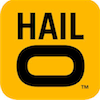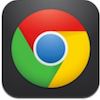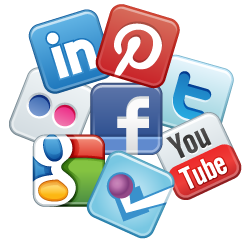
For some time hotel technology has been limited to online booking. With so many Hotels out there what will be the differentiator for both the leisure traveller and business traveller? It’s time for hoteliers to embrace tech and step up the game.
Some tech-savvy hotel chains and hoteliers are now introducing additional mobile information to the customer:
- Book
- Loyalty points
- Promote upgrades and ancillaries – social
- Hotel info with photos and features
- Location-based things to do and weather
- Getting to hotel
- Customer service notification
However, these functions are becoming the norm and the next-gen hotel needs to become a “smart-hotel”.
In addition to “basic functions” the “smart-hotel” should add power features. These are features that make the hotel experience better for the consumer, especially the time precious business customer.
The “Always-Connected” hotel
Let’s start with always on, free Wi-Fi web access. There is no excuse for any hotel to charge for broadband – Even McDonalds restaurants and Costa coffee houses, now provide free Wi-Fi. I won’t even book a hotel unless I can guarantee free Wi-Fi. I make sure at check-in that it’s available in my room and throughout the hotel. If not, you won’t find me booking again.
Bypass check-in and open the door
OK, sometimes it’s nice to be able to chat to the reception crew but most of the time, and on a repeat booking, you arrive at the hotel and just want your room. Imagine being able to check-in remotely from your mobile and get an update when the room is ready and your electronic NFC or barcode key is ready. The Holiday Inn Express Hotel & Suites in Marion, Illinois has enabled guests to “breeze past the front desk and head up to their room as long as they have their mobile to unlock and enable the room”. This uses a tech from OpenWays (http://www.openways.com). This provides a Crypto Acoustic Credential (CAC) using text messaging to deliver a unique acoustic key to the guest anywhere in the world. The good thing about this tech is that a CAC compliant door lock can be retro-fitted to many hotel electronic locks.
In-hotel services
In the last hotel I visited, neither the TV nor the remote worked. I could not order movies or room service (there was no phone you had to use the TV). So, why not pop up a mobile page on your phone using NFC or post your remote check-in to order room service? Consider the upsell opportunity here as the mobile site shows me the delights of the room service menu in glorious Hi-Def and tempts me with side orders and beverages. Alternatively let me pre-book dinner and my selection? Why not show reviews of each course and better still show me any peer reviews.
Downloadable movies and (free of course) and TV channels could also be facilitated to my mobile or better still via the room flat screen TV.
A relatively new app on the scene is the iRiS app (http://www.irisapps.com/). This ingenious app enables the guest and hotelier to communicate in any language and offers the guest many enhanced features such as setting room temperature, opening the door, closing curtains and set the mood lighting. This is a cloud based facility so that the guest can set the room temperature while they are out and about and also make spa or golf bookings, or order a meal. The hotelier, on the other hand, can push real-time offers and discounts to the customer and also ask the customer to fill in a questionnaire: all from their mobile.
What else will we see changing our hotel experience?
Bill Payment
With a mobile enabled hotel, we should be able to review our bill each time we buy a drink or book a service with the ability to pay from the mobile.
Calls
Should you wish to call the front desk why not offer Skype or other network calling capability? Genius, but simple.
Personal service
Hotels need to offer a more personal experience where the customer’s preferences are remembered for each visit making the customers life as easy as possible. The hotelier can then harness the power of personalisation to send personalised offers. I recently had a call from a hotel I regularly use in London. Their room rates have skyrocketed and I was politely asked why my bookings had tailored off. If they had checked my history they would have seen I only book when the price is reduced. All they offered me was a direct contact for my next visit. I may not return unless they do something drastic with their rates! A great mobile experience could be just the bate I need to return.
Enabling technologies
So, smart-hoteliers need to ensure they have enabling technologies for many of the things I have mentioned above. Why not also provide QR codes for the guest to scan to read magazines, info about the hotel?
Oh, and let us not forget, all this smart-tech must work on iOS (iPhone, iPad), Android, Windows Phone, and Blackberry.
This article originally published in Travolution magazine Q3 2013 http://www.travolution.co.uk/.










